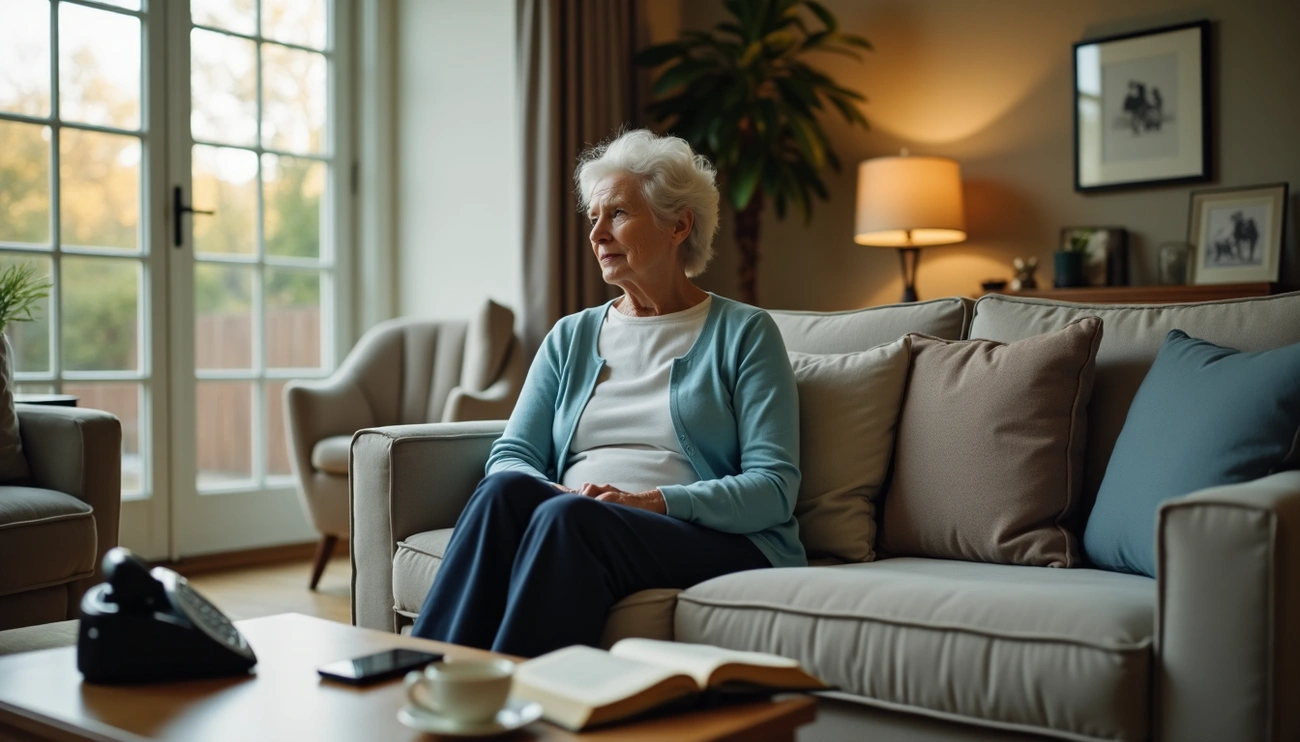Caregiver burnout affects thousands of Americans who neglect their own health while caring for others, studies show. Support groups have emerged as a critical solution to this growing problem, with AARP’s Family Caregivers Discussion Group now connecting over 19,000 members who share experiences and mutual support.
Health professionals consider these groups the first line of intervention for stressed caregivers. Participants report finding relief from isolation through both online and in-person meetings while gaining access to valuable strategies and community resources. Specialized sessions exist for various demographics, including male caregivers and LGBTQ+ caregivers, ensuring options for everyone’s specific situation.
This guide examines how support groups help caregivers regain a sense of understanding and acceptance while managing their responsibilities. It shares insights from real caregivers and offers guidance for finding the right caregiver support groups to match individual needs.
The Emotional Weight of Caregiving
Responsibility for another person’s wellbeing creates a complex emotional landscape most caregivers struggle to navigate alone. The emotional burden of caregiving extends far beyond simple tiredness—it affects every aspect of daily life.
Between 40-70% of family caregivers experience clinical symptoms of depression, according to multiple studies. Researchers describe the caregiving role as “a chronic stress experience” characterized by high unpredictability, uncontrollability, and constant vigilance over extended periods.
Nearly half of all caregivers report feeling lonely, more than twice the general U.S. rate of 22%. This isolation develops as caregivers gradually withdraw from previous activities and social connections. One caregiver described the experience: “The world was moving at its own pace around me”.
Physical health deteriorates alongside emotional strain. Caregivers typically neglect their own medical appointments and proper nutrition. Sleep disorders affect many, with research showing those experiencing loneliness are 2.4 times more likely to have sleep problems.
Burnout—defined as “a state of emotional, mental, and physical exhaustion”—affects more than 60% of caregivers. Signs include:
- Emotional exhaustion and withdrawal
- Feelings of helplessness or hopelessness
- Physical fatigue and sleep disruptions
- Irritability and negative emotions
Caring for someone with dementia proves particularly challenging, causing more severe negative health effects than other types of caregiving. Approximately 60% of Alzheimer’s caregivers report experiencing significant emotional distress.
Despite these challenges, many caregivers find support groups help break the isolation cycle. These gatherings provide safe spaces to share feelings openly among others who truly understand the unique pressures of caregiving.
How Support Groups Make a Difference
Support groups function as lifelines for caregivers navigating the complex journey of caring for others. Research confirms these groups act as powerful buffers against many negative health impacts. Participants gain access to communities that truly understand their daily realities.
Frequent mental distress and depression occur more often among caregivers than non-caregivers. Support groups address this problem by creating safe environments where caregivers share experiences, exchange vital information, and find emotional support from others facing similar challenges.
The benefits extend beyond simple conversation. Participants report improved stress management, reduced isolation, increased resiliency, and significantly less burnout. Mayo Clinic research shows caregivers who regularly attend support groups experience better emotional well-being and lower stress levels overall.
These groups provide spaces where disclosures that might be stigmatized elsewhere—like expressing anger toward the care recipient—meet understanding rather than judgment. Members feel safe discussing common issues like depression, role reversals, and advocacy challenges.
Beyond emotional support, these gatherings deliver practical benefits. They help participants discover resources, coping strategies, and problem-solving techniques. The REACH (Resources for Enhancing Alzheimer’s Caregiver Health) program demonstrated that supportive, educational programs substantially improve caregivers’ quality of life and reduce clinical depression rates.
Both in-person and virtual support groups offer similar advantages. Online support groups provide flexibility for those with limited schedules or who cannot leave their loved ones. Specialized groups exist for various demographics, including African American caregivers, LGBTQ+ community members, and caregivers under 40.
Regardless of format, the primary value remains consistent: creating spaces where caregivers voice stressful experiences without fear of criticism. Through these connections, caregivers discover they are not alone—often the first step toward reclaiming balance in their challenging role.
Finding the Right Group for You
Locating a caregiver support group that matches your specific needs doesn’t require extensive effort. The key lies in understanding where to search and what environment best suits your particular situation.
Support groups typically fall into three main categories: condition-specific groups focused on diseases like Alzheimer’s or cancer, caregiver-specific groups regardless of condition, and groups organized around demographic factors like age or cultural background.
Several practical approaches can jumpstart your search:
- Contact local hospitals, community centers, or senior care providers
- Call specialty organizations related to your loved one’s condition
- Search online for “caregiver support group” in your community
- Check with your Area Agency on Aging for local resources
- Explore virtual options if in-person meetings aren’t feasible
Understanding what to expect helps reduce anxiety before attending your first meeting. Trained facilitators, often social workers, lead most groups. Typical meetings begin with introductions, followed by sharing stories and discussing relevant topics. Participation remains optional—many new members simply observe initially.
Each group maintains its own unique dynamic, contrary to the misconception that all function identically. Some follow structured formats with predetermined topics, while others allow conversations to develop organically based on members’ immediate needs. Groups typically include 8-12 participants, providing sufficient voices for meaningful exchange without overwhelming individual members.
Online support groups offer distinct advantages for many caregivers. These virtual communities remain accessible 24/7, eliminate the need for arranging respite care, and connect members with a broader network of caregivers. They also help users find others handling situations closely matching their specific challenges.
Finding the right fit may require attending several different groups. If one community doesn’t feel comfortable, health professionals recommend trying another. The ultimate goal remains finding a group that leaves you feeling supported rather than emotionally drained.
Conclusion
Caregiving creates unique challenges that often feel overwhelming when faced alone. Support groups provide a crucial lifeline, connecting caregivers with others who understand their daily struggles. These communities deliver more than just emotional support – they function as valuable resources for practical advice, coping strategies, and essential caregiving information.
Studies consistently demonstrate these groups’ positive impact on caregiver wellbeing. Regular participants report decreased stress levels, less isolation, and improved emotional health overall. Support groups help caregivers build resilience while learning from others’ experiences, whether through virtual platforms or face-to-face meetings.
The first step toward joining a support group may seem daunting yet potentially makes significant differences in caregiving journeys. Finding the right group typically requires time and patience. Each caregiving situation presents unique challenges, making it worthwhile to try several groups before discovering one that addresses specific needs and circumstances.
Seeking support represents a strategic approach to maintaining personal health while caring for others, not a sign of weakness. Research confirms that better-supported caregivers ultimately provide higher quality care for their loved ones.











